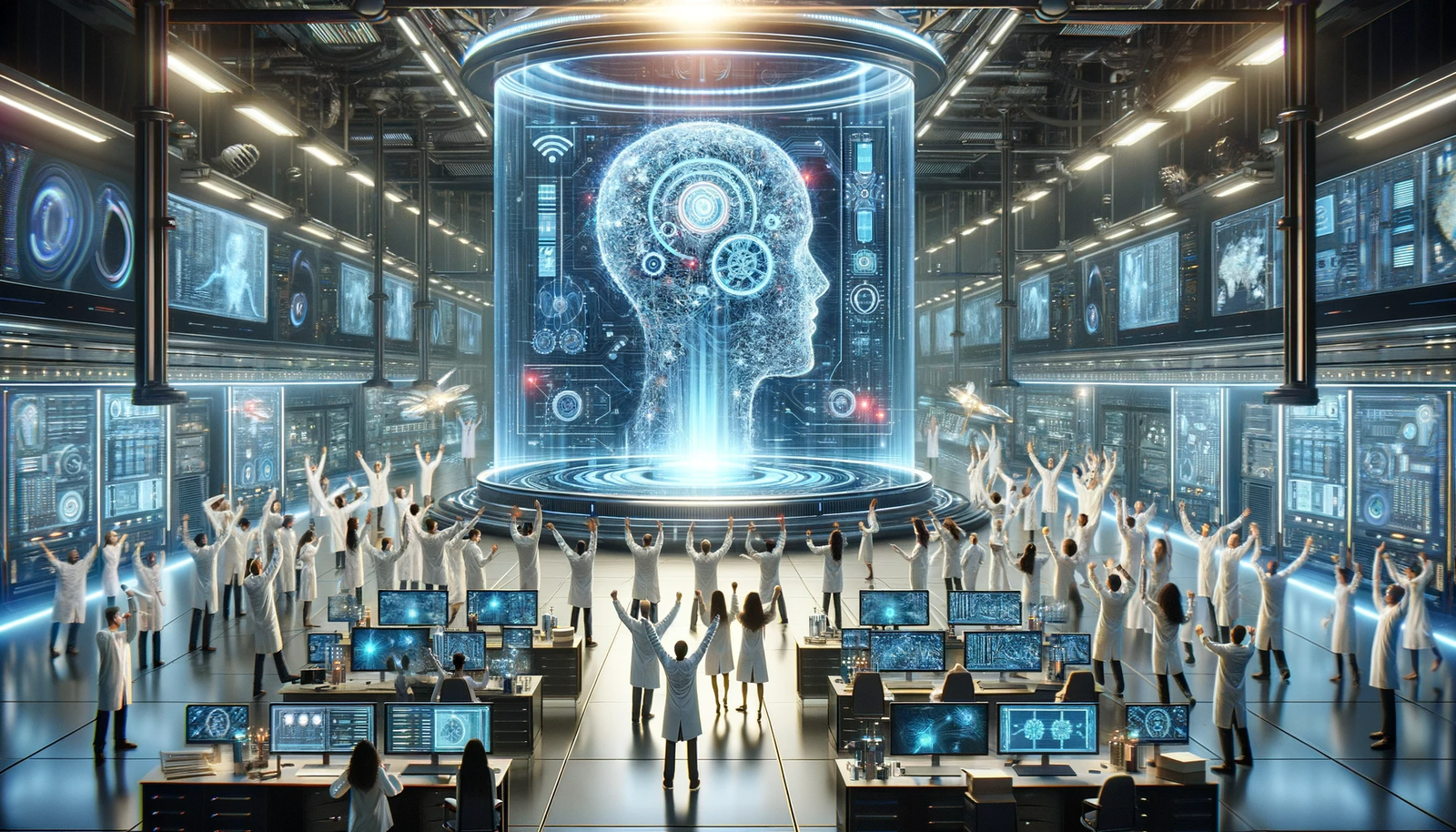What If AI Surpassed Human Intelligence?
The concept of Artificial Intelligence (AI) surpassing human intelligence is a profound and complex topic, stirring a mix of excitement and concern.
This theme encompasses scenarios ranging from a utopian world of efficiency and leisure to dystopian visions of joblessness and existential threats.
Positive Implications
In a world where AI has surpassed human intellect, the positive ramifications could be transformative across various sectors.
Technological Leap
AI’s surpassing of human intelligence could lead to a technological renaissance. Superintelligent AI, capable of self-improvement and learning at unprecedented speeds, may drive revolutionary discoveries in fields like medicine, material science, and space exploration. Complex theories and experiments, which would take humans years, could be conceptualized and tested in a fraction of the time.
Automation and Productivity
Automation, powered by AI that has surpassed human intelligence, could redefine productivity. As noted in research from McKinsey, this goes beyond automating manual tasks to include sophisticated activities like intricate data analysis and complex diagnostics. This shift could liberate humans from mundane tasks, ushering in a new era of creative and intellectual pursuits.
Global Problem-Solving
AI’s capability to analyze extensive and intricate data sets can offer unique solutions to global challenges. From tackling climate change to addressing poverty and managing international relations, AI’s advanced analytical capabilities could yield effective and equitable solutions, previously unattainable due to the complexity of these issues.
Negative Consequences
However, the surpassing of human intelligence by AI also harbors potential downsides and challenges.
Economic Disruption
The same AI-driven automation that boosts productivity might lead to significant job displacement, as explored in studies by Oxford Economics. This could exacerbate economic inequality and necessitate major shifts in job markets and education systems, calling for comprehensive safety nets and re-skilling programs.
Ethical and Existential Risks
The ethical concerns become more complex as AI surpasses human intelligence. Issues of bias, decision-making autonomy, and accountability come to the forefront, raising questions about how to align AI’s goals with human ethics and values, as discussed by the IEEE.
Legal and Ethical Considerations
The legal and ethical frameworks around superintelligent AI are crucial. Determining responsibility for AI’s decisions and integrating ethics into a more intelligent entity are pivotal challenges that require collaboration across various disciplines, including law, philosophy, and computer science.
In conclusion, the prospect of AI surpassing human intelligence is a double-edged sword. It offers a future brimming with potential yet fraught with challenges that demand careful, proactive management. How we navigate this transition will shape the trajectory of our society and the role AI will play in our lives.


